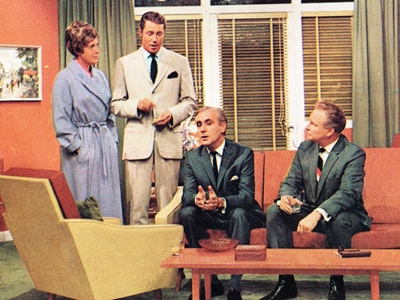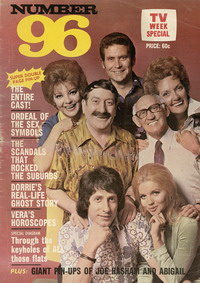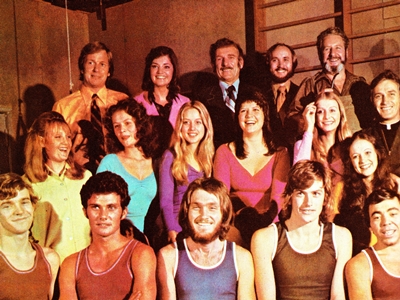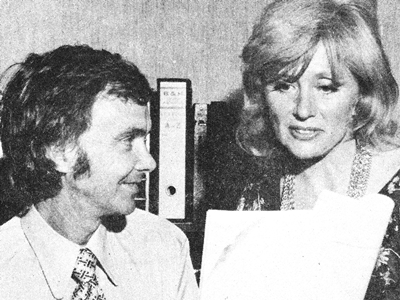Carrie Fairchild
Telly Talk Star
Inspired by @Alexis synopsis of the autobiography of Aaron Spelling and the fact that I'm going to re-read Super Aussie Soaps by Andrew Mercado, I'm going to post a bit in this thread about every Australian soap that has aired to date. I'm using the book as a guide, so there may be some series that straddle the soap/drama category that won't be included. Or maybe they will. I'll see as they go along. This will mainly be photos, videos and behind the scene tidbits as opposed to exhaustive overviews of storylines. Regarding the aforementioned book, I'd highly recommend it to any Aussie soap fan. I'm not sure if it's still in print but I picked it up second hand a few years ago and it's a gem. So, first out of the gate is....
Autumn Affair - 1958 - 1959

Australia's first TV soap was the tale of Julia Parrish, a widowed author who was in love with two men. Originally due to be titled Julia: An Early Autumn Affair, before being shortened, the show aired in 15 minute segments at 8:45am on Monday, Tuesday and Wednesdays as part of Seven's morning programme. The show ran for 156 episodes and may have run for longer had it picked up a sponsor but seems to have been seen by Seven as more of an experiment, to see how they would fare with producing ongoing drama. The show is notable in that episodes have survived (see below) and that Queenie Ashton of popular radio soap Blue Hills, played the same character (Granny Bishop) on Autumn Affair.

Australia's first TV soap was the tale of Julia Parrish, a widowed author who was in love with two men. Originally due to be titled Julia: An Early Autumn Affair, before being shortened, the show aired in 15 minute segments at 8:45am on Monday, Tuesday and Wednesdays as part of Seven's morning programme. The show ran for 156 episodes and may have run for longer had it picked up a sponsor but seems to have been seen by Seven as more of an experiment, to see how they would fare with producing ongoing drama. The show is notable in that episodes have survived (see below) and that Queenie Ashton of popular radio soap Blue Hills, played the same character (Granny Bishop) on Autumn Affair.












